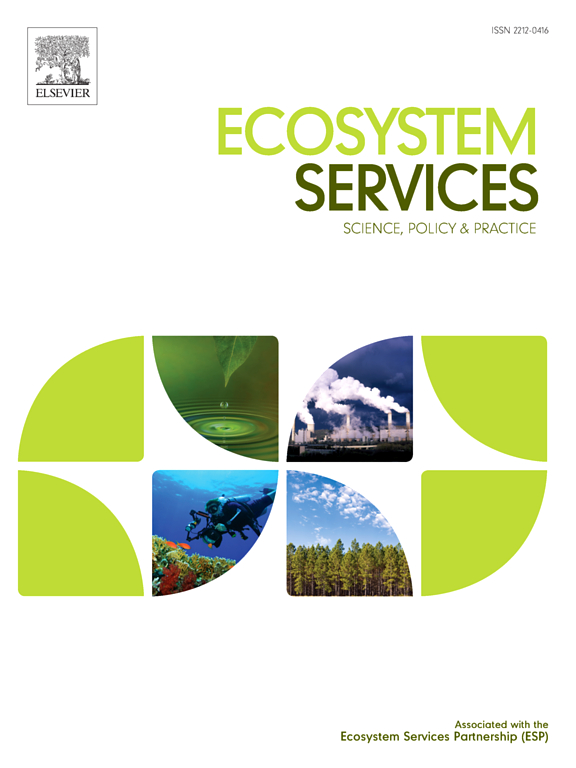Payment for ecosystem services and crowding of conservation behavior: A meta-analysis of lab-in-the-field experiments
IF 6.6
2区 环境科学与生态学
Q1 ECOLOGY
引用次数: 0
Abstract
Concerns have been raised that payments for ecosystem services (PES) may crowd out land users’ non-monetary motivations to engage in conservation behavior. Especially once incentives are terminated, PES risk to be ineffective or even counterproductive. So far, research has produced mixed evidence. We present the first meta-analysis of studies that investigated crowding effects of PES through lab-in-the-field experiments with 2,894 real-world resource users taking 44,540 conservation decisions. On average, PES are successful in increasing conservation behavior and do not crowd out conservation behavior once incentives have been terminated. Although PES demonstrate greater effectiveness in settings where local resource users directly benefit compared to settings where third parties benefit, there is no evidence suggesting systematic differences in crowding effects between these two situations once PES have been terminated. Based on the available experimental evidence, the frequently voiced risk that PES crowd-out conservation, especially once payments are terminated, cannot be substantiated. However, methodological concerns regarding the internal and external validity of current experiments raise questions about the broader applicability of these findings. This paper outlines potential avenues for future research to address these challenges.
生态系统服务的支付与保护行为的拥挤:实验室-实地实验的元分析
人们担心,生态系统服务(PES)的支付可能会排挤土地使用者参与保护行为的非金钱动机。特别是一旦激励措施终止,pe可能会失效甚至适得其反。到目前为止,研究得出的证据好坏参半。本文首次荟萃分析了通过对2,894名现实世界资源使用者进行的44,540项保护决策的实验室现场实验来调查PES拥挤效应的研究。平均而言,PES成功地增加了保护行为,并且一旦激励措施终止,不会排挤保护行为。尽管PES在本地资源使用者直接受益的情况下比第三方受益的情况下表现出更大的有效性,但没有证据表明,一旦PES终止,这两种情况之间的拥挤效应存在系统性差异。根据现有的实验证据,经常提出的PES挤占保护的风险,特别是一旦终止支付,是无法证实的。然而,关于当前实验的内部和外部有效性的方法学问题引发了对这些发现的更广泛适用性的质疑。本文概述了未来研究解决这些挑战的潜在途径。
本文章由计算机程序翻译,如有差异,请以英文原文为准。
求助全文
约1分钟内获得全文
求助全文
来源期刊

Ecosystem Services
ECOLOGYENVIRONMENTAL SCIENCES&-ENVIRONMENTAL SCIENCES
CiteScore
14.90
自引率
7.90%
发文量
109
期刊介绍:
Ecosystem Services is an international, interdisciplinary journal that is associated with the Ecosystem Services Partnership (ESP). The journal is dedicated to exploring the science, policy, and practice related to ecosystem services, which are the various ways in which ecosystems contribute to human well-being, both directly and indirectly.
Ecosystem Services contributes to the broader goal of ensuring that the benefits of ecosystems are recognized, valued, and sustainably managed for the well-being of current and future generations. The journal serves as a platform for scholars, practitioners, policymakers, and other stakeholders to share their findings and insights, fostering collaboration and innovation in the field of ecosystem services.
 求助内容:
求助内容: 应助结果提醒方式:
应助结果提醒方式:


